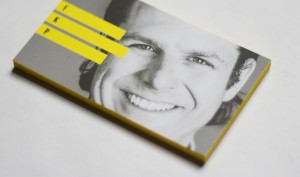'My sentencing instincts suck,' blogging judge admits, wishing ex-con-turned-law-student well

This week, we noted that Shon Hopwood—who wrote a rare winning certiorari petition to the U.S. Supreme Court while in federal prison for bank robbery and has since been released and entered law school—has been hired as a clerk for Judge Janice Rogers Brown of the U.S. Court of Appeals for the D.C. Circuit.
The news prompted Senior U.S. District Judge Richard Kopf to write about his brief history with Hopwood.
“Shon Hopwood was a young man when I sentenced him to prison for a long time in the late 1990s,” Kopf wrote at Hercules and the umpire. He sentenced Hopwood to 147 months, to be exact.
But Kopf gives Hopwood credit and wishes him well. “Hopwood proves that my sentencing instincts suck,” Kopf wrote. “When I sent him to prison, I would have bet the farm and all the animals that Hopwood would fail miserably as a productive citizen when he finally got out of prison. My gut told me that Hopwood was a punk—all mouth, and very little else. My viscera was wrong.”
A taxing question
Edward Snowden, who is wanted in the U.S. on espionage charges after leaking information about the National Security Agency’s data collection program, has won asylum in Russia through July 31, 2014, and has received multiple job offers there, Philadelphia lawyer Kelly Phillips Erb notes at Taxgirl.
“But now for the $64,000, er, ruble question: will the U.S. ever see a penny of that income?” Erb writes. “For all of the drama, including the revocation of his passport, Snowden remains a U.S. citizen. And under our tax laws, if you are a U.S. citizen living outside the United States, your worldwide income is subject to U.S. income tax, regardless of where you live.”
While Snowden’s passport has been revoked, that’s separate from citizenship, Erb writes. And neither his alleged crimes against the government nor his asylum claim affects his citizenship. Snowden could renounce his citizenship, but he’d have to do so at a U.S. embassy, and “that most certainly won’t happen,” lawyer Richard S. Goldstein told Erb.
While Snowden is still required to pay his U.S. taxes, Goldstein said. “Good luck trying to collect it.”
Beware boring business cards

Image of Fogle Keller Purdy business card
courtesy of Bullhorn Creative.
Solo Practice University’s Susan Cartier Liebel looked at a stack of business cards she collected at a recent bar event and realized almost none of them did anything to help her remember who gave her the card.
“None gave me any information to help jostle my memory after I got back to the office,” she wrote. “None had a space for notes where I could write a memory jogger of my own. For me, they were dead on arrival.”
Except for the business cards from Fogle Keller Purdy in Lexington, Ky. One side of the card had basic business card information, and the other had a large headshot of the lawyer whose card it was. “I insisted on having one because they were so cool,” she wrote. “Lawyers should not be fearful about being different with their business cards. Even more so today, with people using the Internet to find you. If you are going to use business cards, let them be meaningful and noteworthy, both a standout and a keeper.”
For more examples of interesting lawyer business cards, check out this ABAJournal.com gallery.
The wedding was the crime
In a sham wedding for the purpose of immigration fraud, when does the crime take place? At The Federal Criminal Appeals Blog, Washington, D.C., lawyer Matt Kaiser notes a ruling by the Atlanta-based 11th U.S. Circuit Court of Appeals that clarifies things.
U.S. citizen Yunier Rojas was indicted five years and four days after he (admittedly) entered into a fraudulent marriage filed a motion to dismiss based on the five-year statue of limitations for prosecuting such crimes. The government argued that the clock started running two years into the marriage, when they admitted their fraud after an interview with Immigration and Customs Enforcement.
But the 11th Circuit agreed with Rojas—the fraud, in these cases, takes place on the wedding day. “So, Mr. Rojas is free to go,” Kaiser wrote. “Though I suspect that the statute of limitations on lying to the ICE investigators may not have run yet.”



